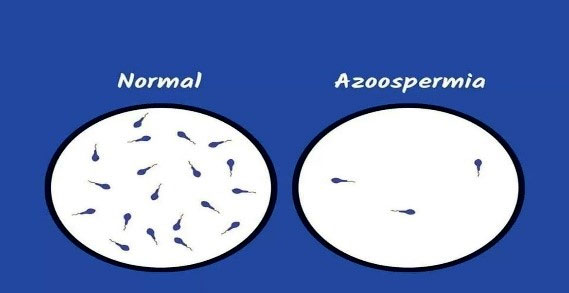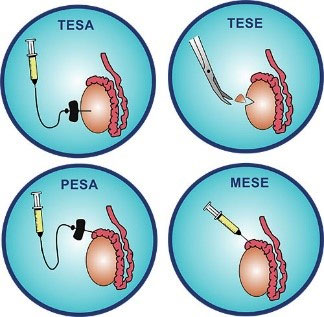Male Infertility
The American Society of Reproductive Medicine (ASRM) estimates that in about a third of infertility cases it is due to the male. Another third is the female. In the last third of infertile couples, the problem is caused by either a combination of reasons, or, in 20 out of 100 cases, it can’t be explained.
Male infertility is any health issue in men that refers to a male’s inability to cause pregnancy in a fertile female. Male infertility is the result of low sperm production, abnormal sperm function or blockages that prevent the delivery of sperm. Illnesses, injuries, chronic health problems, lifestyle choices and other factors can play a role in causing male infertility. Hence, male infertility treatment in India has high demand. In metro cities like Mumbai, people consult infertility specialist in Mumbai to resolve the male infertility problem.
How do you know if your male partner has an infertility issue? Symptoms are:
- Swelling and pain in the genital region
- Low sex desire
- Trouble getting an erection
- Retrograde ejaculation
Some Of The Other Common Causes Of Male Infertility:

- Sperm Disorders: Sperm problems can be from traits you’re born with. Lifestyle choices can lower sperm numbers. Smoking, drinking alcohol, and taking certain medications can lower sperm numbers. Other causes of low sperm numbers include long-term sickness (such as kidney failure), childhood infections (such as mumps), and chromosome or hormone problems (such as low testosterone).
- Varicoceles: Varicoceles are swollen veins in the scrotum. They harm sperm growth by blocking proper blood drainage. It may be that varicoceles cause blood to flow back into your scrotum from your belly. The testicles are then too warm for making sperm. This can cause low sperm numbers.
- Retrograde Ejaculation: Retrograde ejaculation is when semen goes backwards in the bladder. They go into your bladder instead of out the penis. This happens when nerves and muscles in your bladder don’t close during orgasm (climax). Semen may have normal sperm, but the semen cannot reach the vagina. Retrograde ejaculation can be caused by surgery, medications or health problems of the nervous system. Signs are cloudy urine after ejaculation and less fluid or “dry” ejaculation.
- Hormones: Hormones made by the pituitary gland tell the testicles to make sperm. Very low hormone levels cause poor sperm growth.
- Medication: Certain medications can change sperm production, function and delivery. These medications are most often given to treat health problems like:
- arthritis
- depression
- digestive problems
- infections
- high blood pressure
- cancer
- Immunologic Infertility: Sometimes a man’s body makes antibodies that attack his own sperm. Antibodies are most often made because of injury, surgery or infection. They keep sperm from moving and working normally. This is not a common cause of male infertility. Prevention Many types of male infertility aren’t preventable.
However, you can avoid some known causes of male infertility.
- Don’t smoke.
- Limit or abstain from alcohol.
- Steer clear of illicit drugs.
- Keep the weight off.
- Don’t get a vasectomy.
- Avoid things that lead to prolonged heat for the testicles.
- Reduce stress.
- Avoid exposure to pesticides, heavy metals and other toxins
Diagnosis
Semen analysis: It is a male fertility test that starts with a semen sample collection in a clean container. The male can masturbate and release the ejaculate completely keeping 05 days of abstinence. First few drops of the semen are very rich in sperms. Hence, you should carefully collect the semen and then give it for examination.
An average sperm count is around 15 million to 200 million per ml of the ejaculate. Sperm count less than 15 million, we call oligospermia or low sperm count. Less than five million is severe oligospermia that means severely reduced sperm count. Not only the count but we also have to check the sperm motility, morphology and viability as it plays a significant role. All three functional parameters together to call a good sperm analysis.
The morphology that is shape of the sperm head, or the sperm tail should be standard as it plays a vital role in attaching the egg. The sperm quality is examined under a high magnification microscope.
Analysis Of Hormonal Levels:
In a few cases, there is not even a single sperm in the ejaculate, i.e., Azoospermia. In such cases, we do a hormone analysis of the males. We check the testosterone level, the FSH, LH, Thyroid, etc.
- Ultrasound with Doppler studies for evaluation of Bilateral Varicocele: The third examination that you can do is an ultrasound of the testis. Ultrasound determines the structure and size of the testis.
- Genetic testing:In a few cases, we also recommend male genetic testing. One looks like a male, but sometimes there is an extra X in the genetic make-up. For example, as in males with Klinefelter syndrome have XXY. Such male will not have enough sperm or no sperms in their testes.



